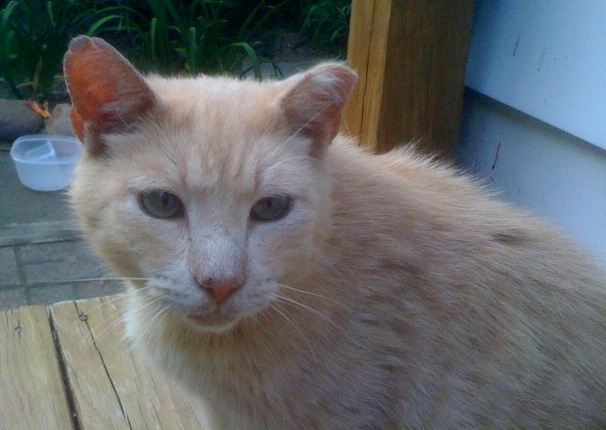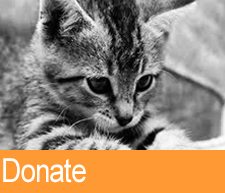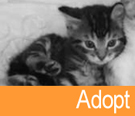TNR-Trap-Neuter-Return
Two uncontrolled breeding cats, plus all of their kittens and all of their kittens' kittens, create an astounding pyramid of misery. We are working diligently to break this gruesome chain and end the suffering it creates.

Scientific studies show that Trap-Neuter-Return, also known as TNR, is the humane and effective approach for managing feral cats. Trap-Neuter-Return improves the lives of feral cats, improves their relationships with the people who live near them, and decreases the size of colonies over time. These studies have been conducted in multiple countries, and have been published in a variety of peer-reviewed scientific journals.
Cats benefit from Trap-Neuter-Return for their entire lives. Studies show that after neutering, cats become healthier and gain weight. Outdoor cats in managed colonies even live longer thanks to TNR. One study of a TNR program found that at the end of a 10-year period, 83% of the cats in the managed colonies had been residing in those colonies for more than six years—indicating a life span comparable to the 7.1-year life span of pet cats
Neutered cats also roam less and do not fight over mates. Studies have found that after neutering, cats in managed colonies were less aggressive and more affectionate towards each other.
By eliminating mating behaviors, Trap-Neuter-Return makes cats better neighbors. Neutered cats make less noise, for example, and fight less. One study found that calls to animal control about cats decreased after a TNR program was implemented—even though the human population increased.
Multiple long-term studies of Trap-Neuter-Return have shown that the size of managed colonies decreases over time. One study found a 66% decrease in the populations of managed colonies over 11 years, while another study of a TNR program over a 10-year period documented colony size decreases of 16 to 32%.








